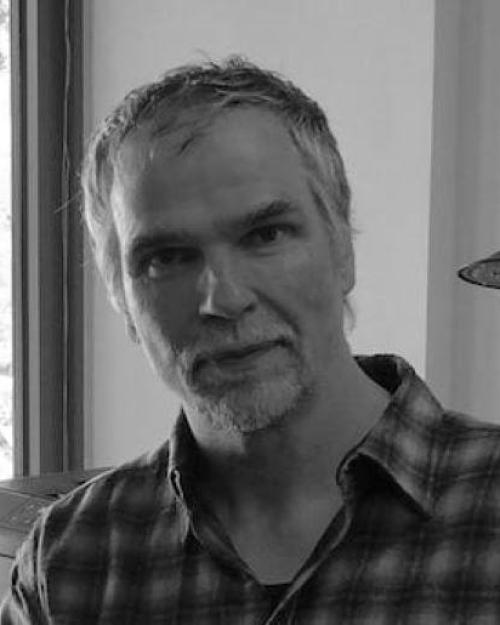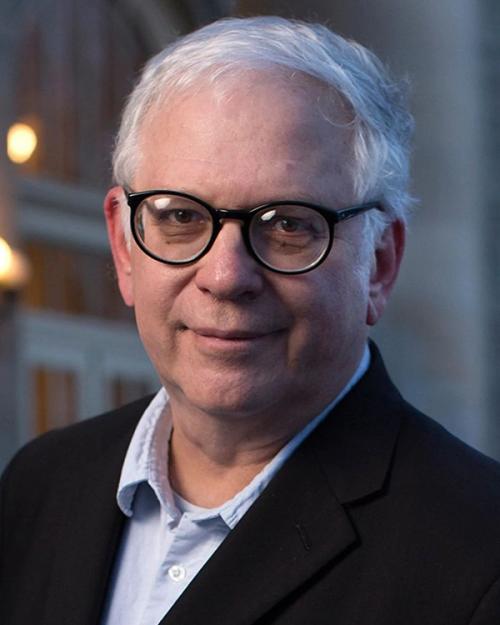Richard William “Dick” Miller, the Wyn and William Y. Hutchinson Professor in Ethics and Public Life Emeritus in the College of Arts and Sciences, who brought deep moral insight to philosophical theory and matters of social and political justice, died June 9. He was 77.
Miller was widely heralded for extending the traditional boundaries of philosophy to incorporate the social sciences – a far-reaching and inclusive approach that reflected his diverse interests and his dedication to wrestling with a range of urgent ethical issues, from poverty and capitalism to U.S. foreign policy and climate change.
“Dick Miller was a remarkable scholar and teacher, a true polymath,” said Kieran Donaghy, professor emeritus of city and regional planning in the College of Architecture, Art and Planning. “Through his research in support of his philosophical positions, he became as knowledgeable about discourses in such diverse disciplines as theoretical physics, climate science, political science and social anthropology as experts in these fields were. He was truly a ‘worldly’ philosopher.”
Miller, born Sept. 24, 1945, earned his bachelor’s degree from Amherst College in 1965 and his Ph.D. from Harvard University in 1975. While his dissertation focused on solipsism and language in the writings of Ludwig Wittgenstein, he was not thinking solely about academic matters in those years – he was actively protesting the war in Vietnam, supporting the civil rights struggle and working to combat class and income inequality.
“The antiwar movement was what made me interested in political philosophy,” Miller once said. “What to think about the nature of political power in the United States became very practically important. … My central hope for my work is that it will help people make the right political choices and discuss their political differences in morally insightful ways.”
After beginning his teaching career at the Massachusetts Institute of Technology, Miller joined Cornell’s Sage School of Philosophy in 1973, where, along with his colleagues the late Richard Newell Boyd and Nicholas Sturgeon, he helped to establish the university as a center of research in ethics.
“His level of intellectual energy has long astonished me,” said Harold Hodes, associate professor of philosophy (A&S), who as a graduate student overlapped with Miller at Harvard in the early 1970s. “He was interested in, and knowledgeable about, various arts, especially literary and musical. It seemed that one could have an interesting discussion with him about almost anything.”
The breadth of Miller’s philosophical knowledge was evident in his teachings and publications, which spanned aesthetics, Marx, ethical theory, epistemology and general philosophy of science.
One of Miller’s largest contributions to his discipline was helping to move the philosophy of science toward a new model of scientific methodology, one that isolated causal mechanisms to explain observations, whereas the prevailing model from the 1920s into the 1960s had been positivism, which subsumed specific observations under general laws, according to Derk Pereboom, the Susan Linn Sage Professor of Philosophy and Ethics (A&S).
In this effort, Miller joined prominent figures such as his Harvard philosophy professor, Hilary Putnam, and MIT linguistics professor Noam Chomsky, with Miller extending this movement to the social sciences, Pereboom said.
“Dick’s book, ‘Fact and Method’ not only disabused generations of students in fields other than philosophy – e.g., planning and the social sciences – of the fallacies of positivism, but also liberated them from the straitjacket of the ‘covering-law model,’ still pervasively taught in courses on research methods,” Donaghy said. “‘Fact and Method’ was also influential in giving rise to the ‘causal realism’ methodological movement in economics.”
In the late 1980s, Miller’s focus shifted to issues of economic and political justice, often on a global scale. Undergraduate and graduate students who enrolled in his Ethics, Development and Globalization course were “challenged – for the better – by Dick’s cogent analyses of ethical dimensions of climate change and U.S. foreign policy,” Donaghy said.
As an adviser, Miller was patient and unfailingly generous with his support, according to Daniel Koltonski, Ph.D. ’11.
“Seemingly every time we met to discuss my work, he’d have at least one question for me that I couldn’t answer but that, as soon as he asked it, I knew that I needed to be able to answer,” Koltonski said. “Dick had a nose for the ways in which a philosophical account might elide some complicating features of the thing at issue for the sake of a neater theory, and that has had a lasting influence on me.”
Nathaniel Jezzi, Ph.D. ’11 recalled Miller being quite funny, with a subtle, yet incisive, deadpan delivery, and his commitment to justice was “genuine and lived.” During the U.S.-led war in Iraq, Miller accepted an invitation to attend meetings of Jezzi’s antiwar student group.
“Dick became a regular member. As a professor who had thought deeply about the ethics of war and written on the topic, he could have led the group,” he said. “But, instead, I was impressed by how he happily sat back in a concerned and supportive show of solidarity and let the students run the discussion.”
When Jezzi organized a visiting lecture series in a local prison and was looking for faculty to participate, Miller was the first person to volunteer.
“His empathy ran deep,” Jezzi said. “He took his students and their ideas seriously but also genuinely cared about them as persons.”
In 2011, Miller was named the Wyn and William Y. Hutchinson Professor in Ethics and Public Life and began directing the Cornell Program on Ethics and Public Life, for which he organized colloquia on an array of topics, from racial and class inequality in America to the ethics of globalization and American imperialism.
“His signature contribution was a number of high-profile lecture series on topics such as the future of democracy and the rise of China, which brought to campus many of the most prominent scholars on these topics worldwide, and which had impressive turnout from the campus community across the disciplines,” Pereboom said.
Miller retired in 2019, but his research continued. At the time of his death, he was in the midst of editing a new book, “The Ethics of Social Democracy: Justice Meets Capitalism,” about which he wrote: “The political program of social democracy is ultimately grounded in the diverse attitudes of a morally conscientious person, for example, helpfulness, cooperativeness and the avoidance of domination. Although these considerations sustain special emphasis on compatriots’ needs, they generate demanding transnational political responsibilities.”
His other books include: “Equality, Democracy and National Sovereignty: Reconciling East and West”; “Globalizing Justice: The Ethics of Poverty and Power”; “Moral Differences: Truth, Justice and Conscience in a World of Conflict”; “Fact and Method: Explanation, Confirmation and Reality in the Natural and the Social Sciences”; and “Analyzing Marx: Morality, Power and History.”
Miller was an avid traveler, backpacking across Europe during summer breaks in college and later visiting Norway, Guatemala, Costa Rica and Nova Scotia with his family. He also traveled to Russia and China for guest lectures on the ethics of climate change and economic and political inequality.
In March 2014, he was named the Tang Chun-I Visiting Professor in the Department of Philosophy at Chinese University of Hong Kong.
Other honors include fellowships with the National Endowment for the Humanities, the Rockefeller Foundation and the American Council of Learned Societies.
Miller is survived by his wife of 41 years, Peggy Dieter, and his daughter, Laura Miller.
A funeral service will be held June 17 at 1 p.m. at Bangs Funeral Home, 209 W. Green St., Ithaca, with a calling hour from noon to 1 p.m. In lieu of flowers, donations in his memory may be made to Doctors Without Borders.





